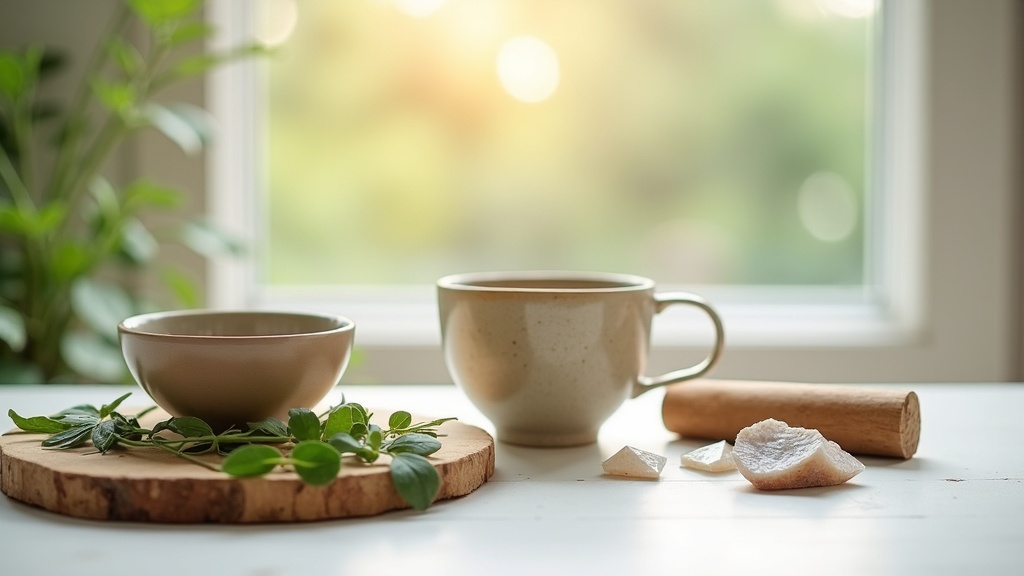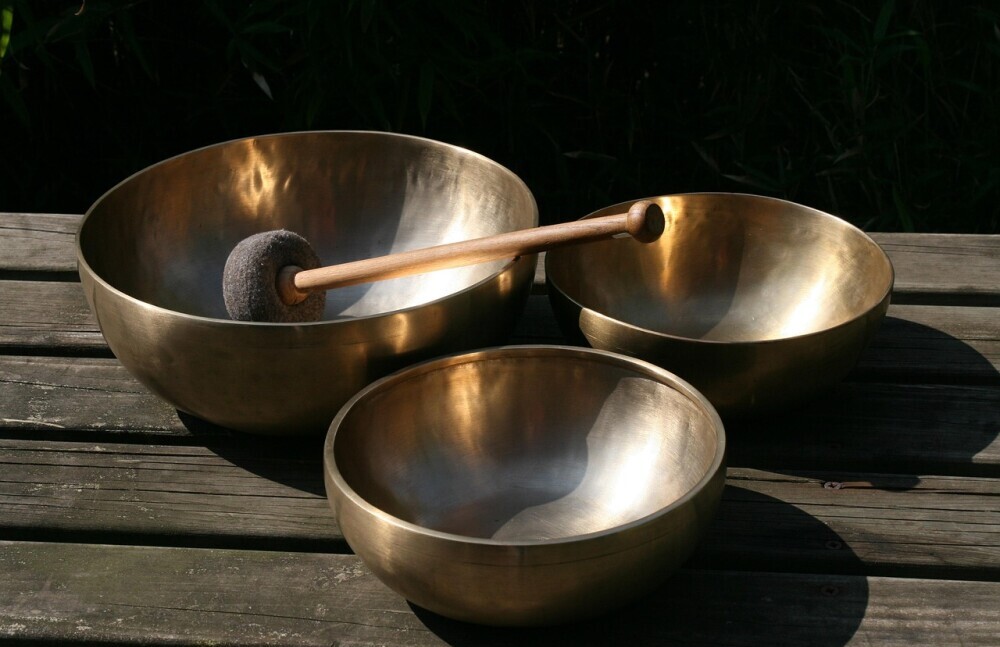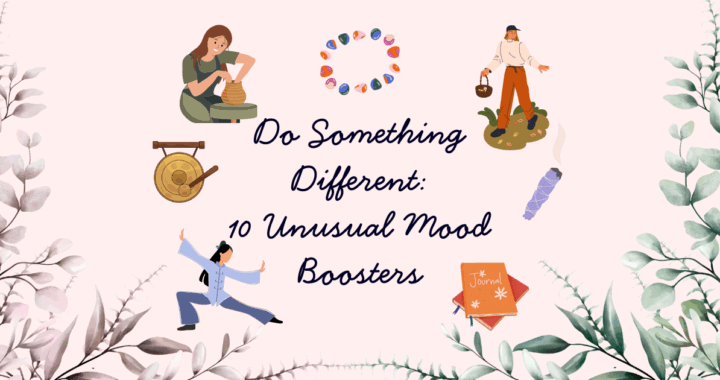 This article contains some affiliate links, which means that if you decide to buy, I may receive a small commission at no extra cost to you. As an Amazon Associate, I earn from qualifying purchases. This helps me keep The Creative Choice growing and free for readers. I appreciate your support. For more information, see our Affiliate Disclosure.
This article contains some affiliate links, which means that if you decide to buy, I may receive a small commission at no extra cost to you. As an Amazon Associate, I earn from qualifying purchases. This helps me keep The Creative Choice growing and free for readers. I appreciate your support. For more information, see our Affiliate Disclosure.
Feeling stressed and fed up? You need to ‘DO SOMETHING DIFFERENT’. Try these 10 unusual mood boosters to pep up your vibration and raise your frequency.
AND, they’re all legal and holistic!
We can all feel stressed at times. It can be a regular part of life, especially if we are working on ourselves and growing emotionally, mentally and spiritually.
However, there are lots of posts out there (on this site, too) that give you the usual suspects and ideas. Things such as easy tips to raise your vibrational frequency, starting breathwork and morning routines can help.
However, sometimes you just want to do something different, and that’s where the suggestions in this post will help. If your usual walk in the park, meditating in silence, or buying another scented candle isn’t doing the trick, try these unusual ideas. All it takes is stepping a little outside your usual routine and saying ‘yes’ to trying something different.
If you’re open to new experiences or you just want to laugh at yourself trying, I’ve found ten unusual things you could do, ranging from free to a little more costly. These ideas are ideal for anyone curious about spirituality, holistic wellbeing, or finding more joy in their everyday life
And remember to let me know how you get on!
1. Try Laughter Yoga
Laughter yoga mixes breathing exercises with intentional laughter. The idea is that fake chuckles soon turn into real ones, and even if you feel a bit ridiculous at first, you end up feeling lighter, not only in your body, but also in your heart. It might seem odd, but studies show that laughter releases mood-lifting endorphins and tones down stress hormones. Laughter yoga isn’t about being flexible or athletic; everyone, no matter your age or ability, can join in and feel the shift. And laughter is contagious. I knew a laughter coach who spent her days teaching people to laugh more: what a great job!
How to Get Started:
- Search for a local laughter yoga group. Most taster sessions are free or very low cost
- Check out Laughter Yoga International
- If leaving the house sounds like too much, there are plenty of free guided laughter yoga videos online
- Invite a friend to try it with you at home, and you might find it’s even more fun laughing together

2. Learn to Throw Pottery
There’s something really grounding about getting your hands covered in clay. Pottery classes are popping up everywhere and can be a fantastic way to get out of your head and create something with your hands. You don’t have to be artistic or particularly good. I remember The Generation Game! You just need to be open to the idea of your bowl turning out more like a wonky cup or the mountain that Richard Dreyfuss created in Close Encounters of the Third Kind.
The sensory experience and focus needed can be very calming, placing your attention firmly in the now! Plus, you might get a conversation piece for your kitchen out of it. Working with clay also helps to break the cycle of repetitive thoughts, offering a unique form of mindful distraction. It’s a chance to step away from screens and let your creativity flow.
Where to Look:
- Check out local community centres or studios. Many offer free introductory sessions for about £15 to £30
- Browse CraftCourses.com for classes near you in the UK and www.workshop-finder.com/ for other ideas for crafting worldwide
- Occasionally, art collectives even host clay nights in local parks during summer, making it a fun way to meet new people, too
3. Join a Gong Bath
A gong bath is not something involving soap and bubbles. Instead, you lie on a mat, close your eyes, and let yourself be bathed in waves of sound from gongs, singing bowls, and chimes. They are one of my favourite ways to chill out and reduce stress. People say the vibrations help calm the mind and reset your mood, and I’ll vouch for that. Even if you don’t fully buy into sound healing, just lying down with your phone switched off for an hour has its own magic.
This practice creates an opportunity for deeper relaxation, letting your body enter a state similar to meditation. And because it’s often done with other people, it can also feel like a more sociable type of meditation. Sometimes, participants also notice improved sleep or a decrease in physical tension after a session.
Details:
- Look for sound baths at yoga studios or holistic centres. Sessions usually cost between £10 and £20
- Bring a blanket, and don’t be surprised if you walk away feeling lighter
- Check the College of Sound Healing

4. Smudge Your Home
Smudging is an ancient practice with deep spiritual and cultural roots across many civilisations. Smudging refers to burning sage or other herbs and wafting the smoke through your living space to clear out stale energy. You can buy a bundle for just a few pounds, open your windows, and try it next time you feel heavy or irritable at home.
It’s a good ritual to press the reset button, not just physically but emotionally, too. Many also use smudging as a way to boost their daily spiritual habits. By smudging before meditation, journaling, or sleep, you can infuse mindfulness into these routines.
How to Do It:
- Always buy sage from reputable, ethical sources. Sourcing matters not just for quality, but also for respecting the traditions behind smudging. You can find Nutgun Californian white sage kits (some including crystals) on Amazon here
- Move room by room, letting the smoke drift into every corner while thinking about what you’d like to let go of. You can add a music playlist or soft chanting for a more immersive vibe
- See www.wikihow.com/Smudge-a-House for more detailed instructions
5. Learn Tai Chi or Qi Gong
Tai Chi involves slow, flowing movements that look a bit like dancing in slow motion. It connects the body and mind, helping you feel more centred and relaxed. You don’t need loads of space, and many classes offer a warm welcome to beginners. Sometimes, the first class is free, but check with the instructor first. Even ten minutes can lift your mood and relax your nerves. Regular practice can also improve your balance and posture, making it a long-term gift to both your mind and your body.
Qi Gong (sometimes written Chi Kung) is a sister practice to Tai Chi. It also uses gentle, repeated movements, but focuses even more on the flow of energy (or “Qi”) through the body. Movements are usually simpler and can be easier to learn if you’re just starting out. Many people use Qi Gong as a daily ritual for stress relief, boosting vitality, and sharpening focus. Like Tai Chi, it’s suitable for all ages and fitness levels, and you can adapt it to your own pace.
Next Steps:
- Search for a class locally or try a free guided session on YouTube
- Explore beginner routines in both Tai Chi and Qi Gong to see which feels best for you
- Check out BHQA (British Health Qigong Association) in the UK or iQGA for worldwide resources
- If you find a style or instructor you like, stick with it for a month – the benefits build gradually with practice
- Find a DVD to use to practice at home – see Lee Holden’s beginner’s Qi Gong DVD on Amazon here or Helen Liang’s Tai Chi for Beginners DVD here

6. Forage for Wild Herbs
Going out to forage for wild herbs or edible plants is a great way to get your mind off worries and tune in with nature. It’s free, fun, and connects you with ancient traditions of herbal medicine. And even if you only come home with a handful of dandelions (high in vitamins A, C, and K, plus calcium and iron, by the way), you’ll probably feel lighter and curious to track down more plant uses.
Many areas now offer group foraging walks, where you can learn safely alongside others and hear about folklore tied to local plants. It’s also a fantastic excuse to get outside and enjoy natural spaces.
Be Safe and Respectful:
- Take an identification guide or join a local foraging walk to avoid mistakes. Try using plant ID apps to double-check picks and expand your knowledge over time
- Never pick rare or protected plants, and always forage in allowed areas. Respect wildlife and always leave enough for the ecosystem to thrive
- Join a guided walk through Wild Food UK or The Association of Foragers

7. Write a Letter to Your Future Self
Grab a pen and some paper, and write an honest letter to yourself six months or a year from now. You can write about your worries, wishes, or how you hope you’ll feel. Then put it in a drawer and forget about it for a while. This simple little ritual gives your mind room to breathe and can help you feel more hopeful because it gets your worries down on paper. When you reread it later, you might spot patterns of growth or realise how much progress you’ve already made.
How to Make it Impactful:
- Be honest, as nobody else is going to read it (unless you show them later). Let yourself write freely and say whatever comes up
- Don’t worry about spelling or structure. This is not an English test! The main thing is that you connect with yourself. Add a photo, drawing, or something else to bring it to life if you want to
8. Have a Mini Silent Retreat (at Home)
This is lovely if, like me, your home is usually full of busyness and noise. Silence isn’t just good for monks and introverts. A couple of peaceful hours with no talking, no screens, and no music can really refresh your mind.
You don’t need a remote cabin either. Just let your loved ones know you’re ‘on retreat’ (so they don’t break the door in when you don’t pick up the phone), make a cup of herbal tea, maybe light a candle, and enjoy the peace. Sit in a different place so you see things from a new perspective. You could also try journaling in silence or going for a quiet walk around your home to notice little things you usually miss. The simplicity of doing nothing is very underrated, but it can really help to lift your mood.
Make it Easy:
- Turn off notifications, put a note on your door, and have snacks ready in advance
- Try practising mindful breathing or stretching gently if sitting still doesn’t feel right for you
9. Try Crystal Gridding
Crystal gridding involves arranging crystals in specific geometric shapes to create a calming, sacred space. Whether you see them as pretty rocks or vessels of energy doesn’t matter. Taking time to place each crystal and focus on your intention acts as a mini mindfulness ritual. It can also be oddly satisfying to see your creation come together. You can try using stones you find outside if you don’t have crystals, making the practice even more personal and meaningful to you.
Tips:
- Starter crystal packs can be found online for around £10 to £15. Look for guides that explain the meaning of different stones to add layers to your routine
- If you’re not sure how to make a grid, online guides can walk you through the basics. Start with simple patterns and grow more adventurous as your confidence builds

10. Book a Floatation Therapy Session
If you really want to try something unique (and you don’t mind getting wet), try a floatation pod. These sessions involve lying back in warm, salty water in a perfectly dark and silent tank. You feel weightless, a bit like that deep rest is one you’ll remember for weeks. Besides relaxation, some people find that their minds become more creative or that problem-solving gets easier after floating.
What to Expect:
- You can book a session at a spa or floatation centre. It’s worth calling ahead to ask questions if you’re new
- Go with no expectations and see what your mind and body stumble upon in quiet weightlessness. Let yourself fully unplug and notice what comes up during the deep calm
Over to you…
You don’t need to follow all ten ideas. Sometimes, trying just one new thing shakes you out of a rut and helps you see new possibilities. If you decide to book a gong bath, get your hands dirty with clay, or just write a letter to your future self, you’re already doing something kind for your mood.
Being curious and willing to try new things is a really important skill, especially when everything feels a bit overwhelming. In fact, doing new activities is one of the recommendations in Cognitive Behavioural Therapy (CBT), which many people use to help them overcome anxiety and depression. You never know; your new favourite mood booster might be something completely unexpected. The world is full of simple, quirky ways to feel better. You just have to be willing to give it a go and see where it takes you.
Related Posts
How to use crystals in your spiritual practice
How to declutter your home and clear your mind





Hello Gail!
I really loved this article because I found it refreshing and uplifting. As someone who has never really made a habit of “mood boosting tools,” these ideas felt like gentle invitations rather than rigid rules.
Your suggestions were surprising and unusual but then that’s what the post said! I especially like the idea of doing something small just to shake up the routine. It reminds me that wellness doesn’t always have to be big or perfect.
I’m curious though. Have you personally tried any of these mood boosters, and which ones surprised you the most? Also, do you adapt them depending on how low your energy feels that day? Thanks for giving me a fresh list of little ways I can brighten my mood any time.
Angela M 🙂
Hi Angela. Good to see you and thanks for your comments on this post. I’m so pleased you liked them. You’re right in that you don’t need lots of money to boost your mood and little things can help a lot. To answer your question, I have done most of these and I like all of them. I’m hoping to go to a floatation centre in the next few months so that will be something off my bucket list. I really like working with crystals and anything creative so the pottery was fun. Which one appeals to you most? All the best. Gail
I really loved this piece—it’s such a refreshing take on mood-boosting ideas beyond the usual “go for a walk” advice! The variety here—from laughter yoga to smudging and pottery—really captures how trying something new can shift your energy in unexpected ways. The descriptions made each activity feel approachable, even for someone new to holistic practices. I’m curious, out of all the mood boosters you mentioned, which one has personally made the biggest difference for you when you’ve needed a lift?
Hi Jenny. Many thanks for your kind comments on this post and I’m glad there was a bit of variety here for you to consider. To answer your question, I think that there have been different things that have helped at different times, depending on my mood. I really like being creative when I am not in the best place so I tend to gravitate towards something like the pottery, or fixing my shed, or creating something in my garden. However, I also love the sound healing as that always seems to help my energy on a really deep and spiritual level. Sound is a very ancient healing therapy and crystals can really help with your energy too. Let me know if you try any of these and how you get on. Gail
What an uplifting read, Gail! I love how you’ve shared such refreshing and out-of-the-box ways to boost mood. It’s a nice change from the usual advice I often see. The crystal gridding idea especially caught my attention. I’ve heard of crystals for meditation, but never thought about arranging them intentionally in patterns. It sounds both creative and calming.
Do you find that the layout or type of crystals makes a noticeable difference in how the energy feels, or is it more about the intention you set while creating the grid?
Hi Sharon. Lovely to see you again and I’m so pleased you liked the post. I like that you picked up on the crystal gridding as it is a fun activity and one of my favourites. You do need to set an intention and this will help you align your crystals in a particular pattern or with particular partners, depending on your intention. For example, some crystals, such as clear quartz, are amplifiers and work with others to amplify the energies. Others are more absorbers of energy, so it really depends on what you want to achieve. There are lots of books about crystal gridding you can read and you can find grids online that you can work with. Once you are more experienced, you can create your own to match your own purpose. Let me know how you get on. Gail